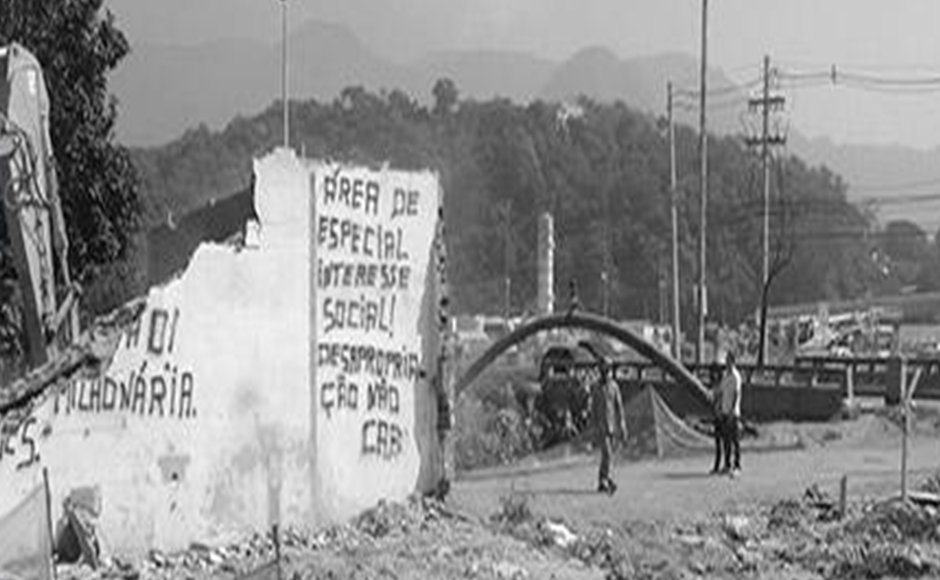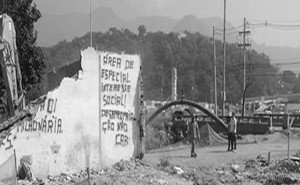
Rio Olympics 2016: Velodrome and Gymnasium


Less than a year before the Rio de Janeiro Olympics 2016, the Olympic Park in Barra da Tijuca is busy, with the making of Velodrome and gymnasium even as the last hold out in the neighbouring favela resisting police attempts to forcibly remove them.
The budget of Reais 38.2 bn £7.9bn is slightly lower than London and Beijing. Rio expects 15,000 athletes, 50, 000 volunteers, 95, 000 staff and 400,000 visitors for two and half weeks of the Olympics and following 11 days of Paralympics.
Mayor Eduardo Paes, is supercharging development, as he was trying to lure private enterprises to fund 60% of the Olympics rather than from the public pockets. His critics accuse him of giving priority to construction firms and property developers. In the meanwhile, the state and City government says they lack funding to clean up Guanabara Bay in time for Olympics.
Pensioner Jane Nascimento de Olivera 58, is fighting a lone battle against the developers, as she has already seen her neighbours home bulldozed as she has now a huge pit outside her front garden and a scaffolding in the yard behind. Her telephone lines are down and her water and electricity cut intermittently. She has a deeds for the house and not broken any laws. Several City officials and lawyers come knocking down her door with offers to coax her away, but she has turned down the latest offer of 400,000 reais (£83,000). She said “people say I am greedy, as I have my personal reasons for holding out, the government should show some respect and humility to people.”.
More than 900 families, 90 per cent of the population of Vila Autodromo have already left. The City says they have already paid 96m reais (£20m), in compensation in addition alternative accommodation nearby land in Barra de Tijuca and Jacarepagua much of it owned by developers who made some quick bucks. The Olympics they say, are just an excuse to remove them. But the City officials says only those in the way of roads or environmentally protected land are being removed.
Young people from Brazil’s favelas, dance their way across the racial divide. The once repressed Afro-Brazilian dancers who were marginalised in the country with World’s largest black population outside Nigeria. Afro-Brazilians account for half the Brazil’s population, but make up three-quarters of inhabitants living in extreme poverty. So far Rio Olympics preparations have failed to live up to the promised development in deprived communities. Many believe it may benefit the small monied elite and exclude the masses. For the masses in the Favellas the Rio Olympic games have made things worse for them.
